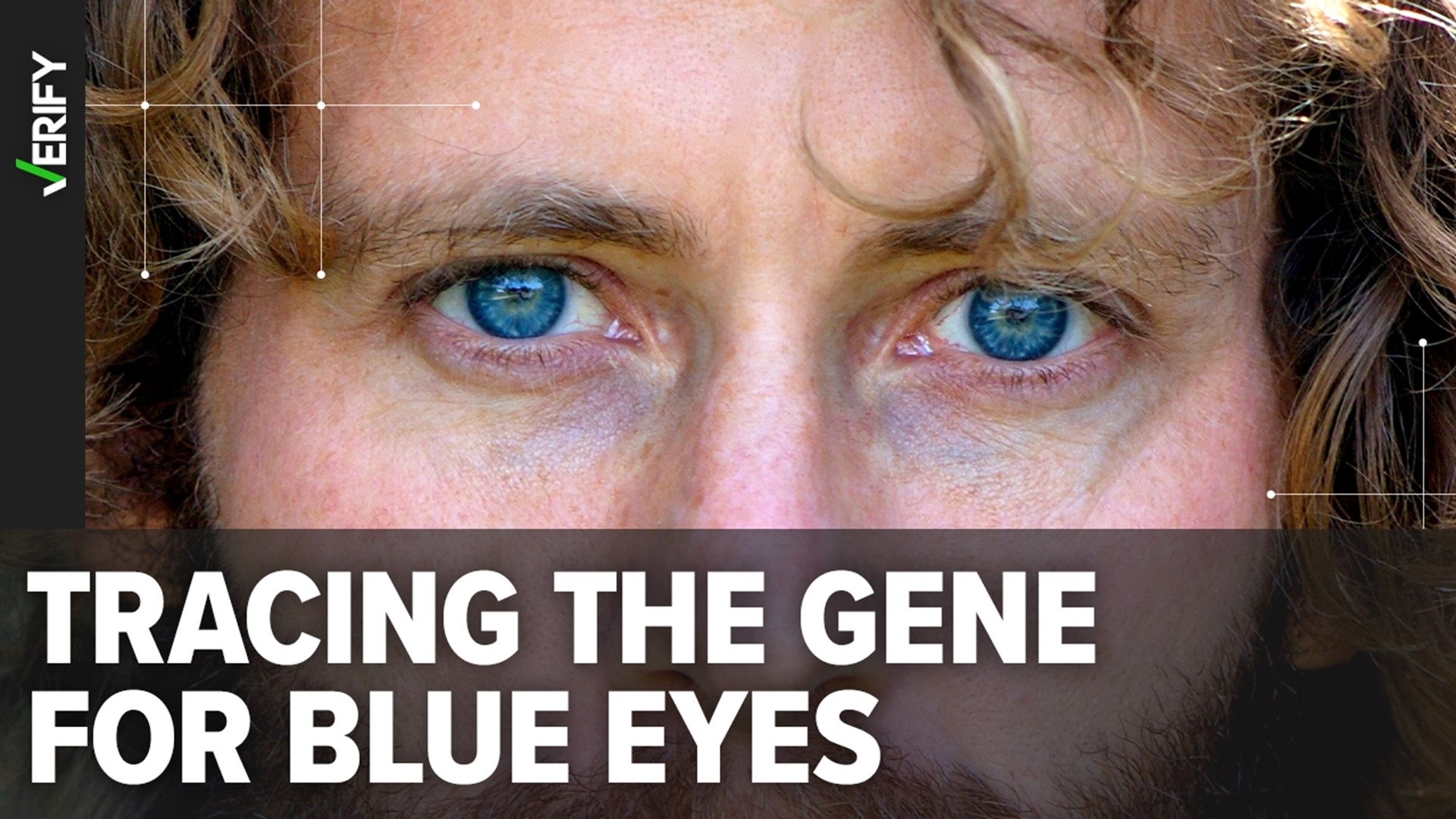As much as 80% of the global population is believed to have brown eyes, while only 8 to 10% of people worldwide have blue eyes, 5% have hazel eyes and about 2% of all people have green eyes. But brown eyes aren’t quite as dominant in the United States. According to Healthline, 45% of Americans have brown eyes, 27% have blue eyes, 18% have hazel eyes and 9% have green eyes.
That means there are tens of millions of blue-eyed people in the U.S. alone. But an Instagram post liked more than 1 million times claims that all blue-eyed people share a common ancestor.
THE QUESTION
Do scientists believe all blue-eyed people share a common ancestor?
THE SOURCES
MedlinePlus, an online health information resource run by the National Institute of Health
Studies about genetic differences in eye color from 2008 and 2010
Mark Shriver, Ph.D., an anthropology professor at Penn State University
THE ANSWER
Yes, scientists believe all blue-eyed people share a common ancestor.
WHAT WE FOUND
All blue-eyed people share a specific genetic trait, the American Academy of Ophthalmology (AAO) says. This trait leads scientists to believe that all blue-eyed people share a single common ancestor who developed the trait as a mutation 6,000 to 10,000 years ago.
In 2008, researchers from the University of Copenhagen discovered this shared ancestry. They studied 155 blue-eyed Danish people, five blue-eyed Turkish people and two blue-eyed people from Jordan and found they all shared the exact same genetic mutation.
The study concluded that this “common founder mutation” is the cause of blue eye color in people. Another study from 2008 similarly concluded that this same mutation is the “ultimate cause of blue eye color.”
“It's clear from the genetic analysis that this mutation happened on one chromosome,” said Mark Shriver, Ph.D., an anthropology professor at Penn State University. “And that would have been in one person.”
Recent research suggests there are as many as 16 different genes that contribute to eye color. But studies show that the same mutation of just one of those genes is present in all people with blue eyes.
You can think of your genes as your personal blueprint. More than 99% of your genes are the same as all other humans, MedlinePlus says. But the few genes that differ from person to person impact what you look like, how your brain functions and more. You inherit your genes from your parents.
Genetic mutations can happen when your cells make a mistake in duplicating the DNA for a new cell, the Cleveland Clinic says. These mistakes can be beneficial, harmful or neither. For example, they may increase or lower your risk of certain cancers, or they could have no impact at all.
Up until the blue eye mutation first appeared in a person 6,000 to 10,000 years ago, all people had brown eyes, according to the AAO. This mutation reduced the amount of a pigment called melanin in people’s eyes, which in turn made those eyes appear blue.












